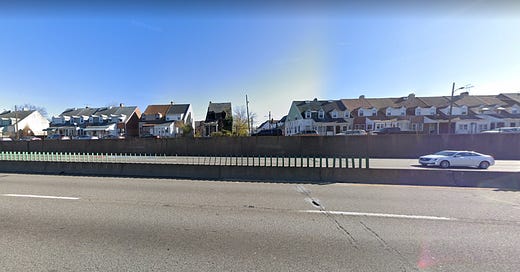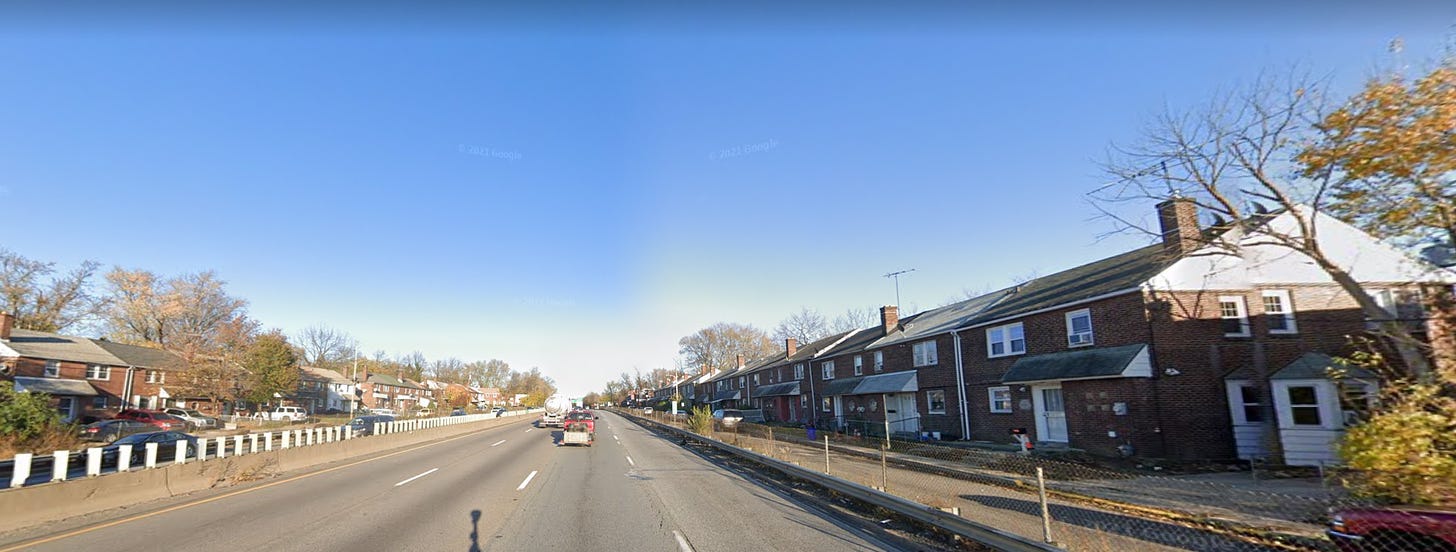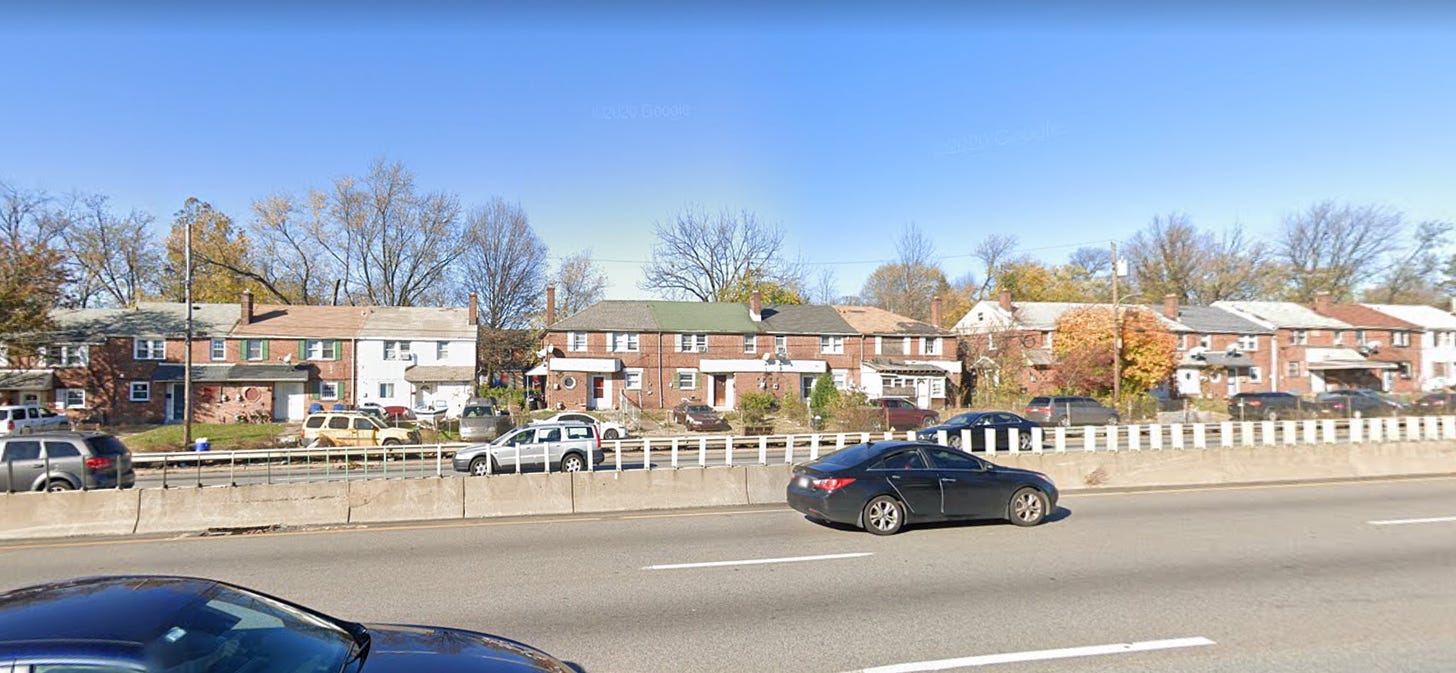If you’ve ever driven the segment of I-95 between Philadelphia and Wilmington, you’ve driven through Chester, one of the poorest communities in Pennsylvania, just south of Philly. Crime is high. Home prices are very low, sinking as low as $30,000 for vacant or dilapidated properties.
For as long as I can remember sitting in the back of my parents’ car, visiting my aunt and uncle in Silver Spring, Maryland or day-tripping around Delaware and the Philly area, I also remember passing these two sets of attached houses right along I-95 in Chester.
It’s about 40 feet from the edge of the Interstate to a front door. Look at this video of a big traffic crash along here, and how close the scene is to people’s homes.
Here are a couple more views, including one from a street a bit inside one of these developments, showing an entire block of abandoned homes.
Apparently, I’m not the only person who’s noticed these homes over the years. I don’t know much about them, other than they’re worth very little on the market, they go back mostly to the 1940s—before the Interstate—and the ones that are inhabited are probably lived in by Black Americans.
Chester was incorporated in 1682, and is the oldest city in Pennsylvania. Back in 1917, Chester saw a massive race riot, perpetrated by whites against Blacks, following a murder and rising tension over Black migration from the South for industrial jobs. Both world wars pumped up the economy, and the construction of these homes in the 1940s points to a lot of hope for the second half of the 20th century. In 1940, neither the houses nor the highway were there; the whole area was farm fields. By the early ’50s, the homes are built, and the Interstate is under construction. Progress. But in a familiar, sad story, manufacturing jobs dissolved in the postwar decades, and Chester inexorably declined. It’s one of those places where history is heavy, economic stagnation having effected physical preservation.
Chester has an Avenue of the States, a proud commercial street that exudes grandeur even in its dilapidated state. You can see and feel the care and the accumulated wealth that went into building these places.
Chester is now majority Black. Certainly there is poverty all around the world, much of it more desperate than this. But the malign racial dynamics of urban poverty, and the sense that we have written off and forgotten so many wonderfully built, historically rich places where thousands of people still live, may be uniquely and tragically American.
I always looked at those houses, as a kid, with a little bit of curiosity. I didn’t know anybody who lived near a highway like that. When they were in better shape, they looked quite nice—solid, homey, a little timeworn in a way that indicated stability. I couldn’t have voiced that when I was 7 or 8 years old, but I think it’s consistent with what I felt then.
I’ve watched these homes decay over the years, with each visit back to New Jersey seeming to reveal another unit boarded up or burned out, another metal awning sagging towards the front step, a little more of that grayness and bleakness that’s as much a mental interpretation as it is a physical condition. A certain vision of America disappears as places like this slip into decay.
I think of the people who live in them, with poor prospects for selling or building equity, if they own them. I think of the people who ran I-95 through the middle of a new neighborhood, greatly intensifying whatever roadway was there before, not even bothering to erect sound barriers. I think of how many built places there are in the country, home to so many people, receptacles of so many memories, so much hard-earned wealth, so many hours of labor, and cast aside by an economic and land-use system that acts as though they don’t exist.
If I thought about it too much, I might stop driving.
Related Reading:
If you like what you’re seeing, please consider a paid subscription to help support this work. You’ll get a Saturday subscribers-only post every week, plus full access to the archive. And you’ll help ensure more material like this!









Agreed. Historically rich places, now derelict, where thousands still live "may be uniquely and tragically American." So well said. So truly sad, but I wager there's a lot of hope in Chester and it's no as bleak as it seems. I wonder what the long-term locals feel and think of their place.